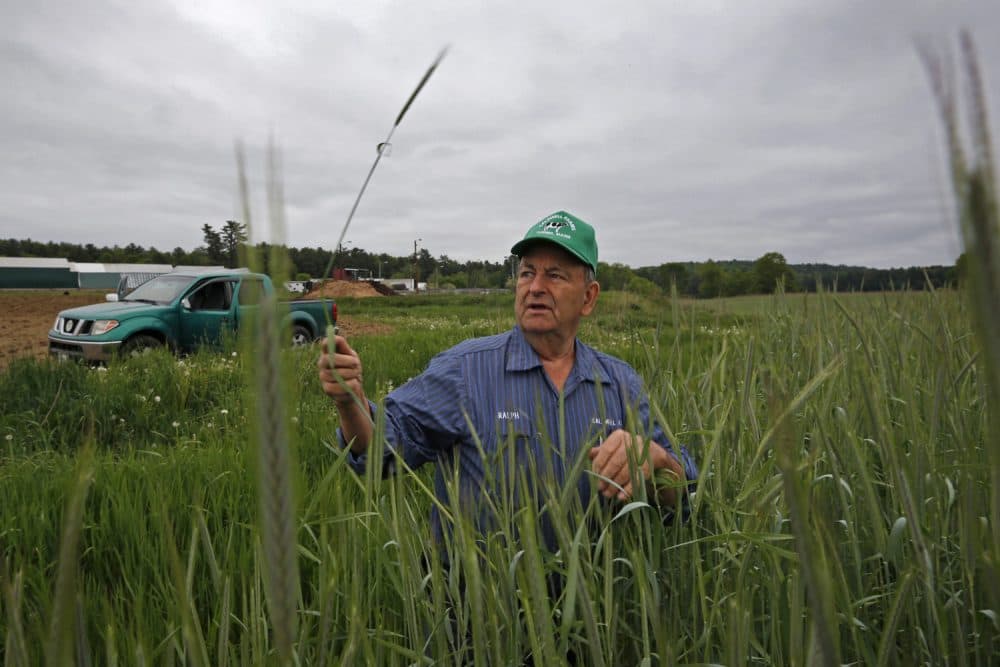Advertisement
Fruit And Veggie Farmers Weigh Risk With Reward

Even as fruits and veggies are held up as a staple of the American diet, they're perhaps some of the riskiest crops for farmers to grow.
Hamstrung by a lack of federal investment in subsidies or research for what the USDA calls "specialty crops," fruits and veggies continue to be overshadowed by commodity crops, such as corn and soybeans, that draw most of the government's focus and money.
Despite these challenges, Jay Hill, a farmer in Mesilla, NM, bets about 95 percent of his land on specialty crops. Hill joined us here at On Point during our show on federal food research funds.
Hill has been farming since age 16. He's 32 now, and he has expanded his father's ten acre farm into a sprawling 1000 acres. He's happy to grow carrots, onions, cabbage, lettuce and green chiles — but it's not without steep challenges.
"For those of us that are growing specialty crops, for the most part there's really not a silver lining at the end of the story," Hill said.
He likened planting a block of lettuce to flying to Las Vegas and putting money down on a roulette table.
"The risk is usually worth the reward, but sometimes it's not," Hill said. "I really, as a producer — I enjoy playing the game."
It's a game that Hill said wouldn't change even if the government began subsidizing specialty crops. Rather, it's about teaching American eaters to appreciate fresh, local produce.
"Until we can figure out a way to have fresh produce, where people can actually taste the difference and start to change these diet behaviors," Hill said, "I don't think you'll see someone go to the store and pick up a crown of broccoli over a candy bar."
Hill wasn't the only farmer we spoke to during our broadcast focused on federal food research.
Gary, a caller from Charleston, SC, told us his family had farmed for hundreds of years before his grandfather stopped growing fruits and veggies when he couldn't afford it anymore. His grandfather made the switch to raising livestock instead. Today, farming in Gary's family has all but disappeared. He's left with a backyard vegetable garden and an uncle who still raises livestock.
"Had there been substantial subsidies to help him and farmers like him to grow healthy vegetables and fruits and non-commodity crops, the family might still be in it," Gary told us.
Aubra, a farmer from Jamesport, NY, called in to express her frustration with local regulations. Even for small farmers eager to grow and sell specialty crops locally, she said, town or county rules can get in the way.
"In order for us to think about nutrition and food country-wide, we really need to begin thinking locally," Aubra said.